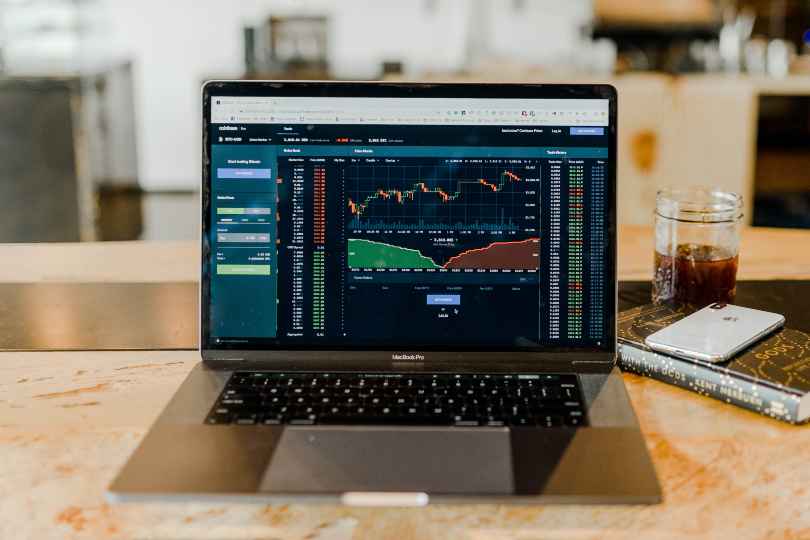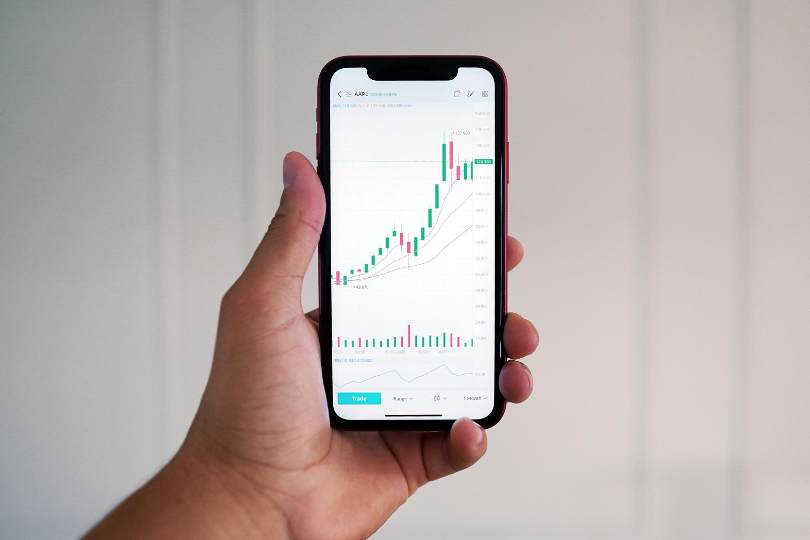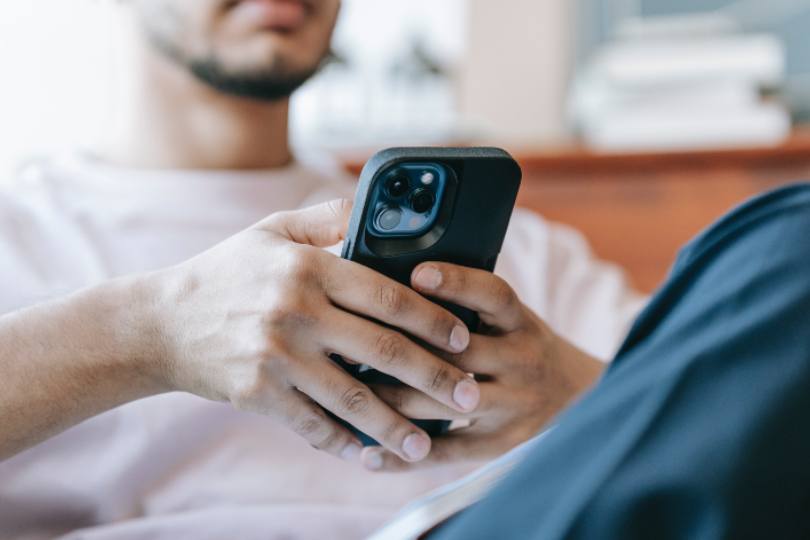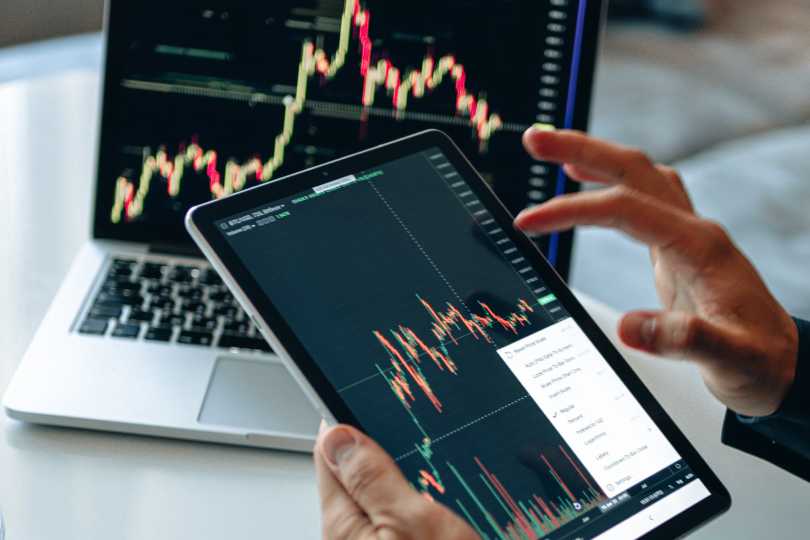If you are a beginner or first-time trader looking to forex trade, I have created a simple 5-step guide on how to start forex trading.
Trading currencies in the foreign exchange market (forex) can be incredibly unforgiving and harsh on novice traders.
That is why, in this guide, I will take you step by step, explaining everything from currency pairs to forex trading strategies to give you the best shot at success when you trade forex for the first time.
Also consider: My guide to Best Forex Trading Apps
Trusted partner
![]()
75% of retail investors lose money when trading CFDs with forex.com.
Commission-free trading
- Low-cost
- 80+ FX Pairs
- Proprietary platform
5 easy steps to trade forex
- Find and open a trading account with a legitimate forex broker. To engage in any form of forex trading, you will need a brokerage account on a trading platform. Not every broker is created equal, therefore, have a good look at some of the best forex brokers on my top list before you choose the one to trade forex with.
- Identify a currency pair to start trading with. The currency pair or forex pairs you decide to trade in will come down to you. I tend to trade currency pairs such as GBP/USD and EUR/USD, but you can also deviate and invest in more exotic currency pairs such as USD/TRY.
- Make your first trade, setting your stops and limits as you do so. Choosing which currency pair you will end up trading at the beginning of your journey will likely come down to the strategy you most want to implement. There are multiple types of stops and limits available to the forex trader; the one you choose will come down to your trading strategy.
- Monitor your position. Keep plugged into the news and political events which could affect your positions, and adjust trades accordingly. The currency market is volatile and warrants special attention. Of course, you won’t be able to constantly monitor the market; therefore, stops and limits are crucial.
- Close your trade and move on. Once you have either achieved your desired position or decided to call it quits, close your trade and either reinvest in the same currency pair or move on to another more suited to your current strategy, to perfect your successful trading strategy.
Trusted partner

80% of retail CFD accounts lose money
2000+ CFDs
- User friendly mobile app
- unlimited CFD demo account
- Trading academy
Start forex trading using a demo account
A demo account is the best way to start trading forex for beginner traders; it is a safe place to learn the ins and outs of the market, the rate of currency pair fluctuation, and much more to help you become a successful forex trader.
When joining a reputable forex trading platform, most organisations will place the new trader in a demo account automatically, requiring further permissions to begin trading with real money.
If this does not occur, open your account in the broker’s settings menu; most will provide the trader with a ‘Switch To Demo Mode’ option somewhere very visible.
One of the most important things you can do on your Forex trading journey is to set up your first trading account, preferably a demo account with a trading platform of your choosing.
Demo trading also allows you to get used to opening and closing trades, where you can monitor your trading position, and get accustomed to practice trading.
The forex market is incredibly turbulent and harsh on beginner and experienced traders alike. Therefore, spend a good amount of time here, find the currency pair you most like to trade in, and can monitor best. In the long run, this will save you a great deal of money.
Find a suitable online forex broker
The brokerage market is saturated right now, giving you a wide range of options to choose from. However, as with anything, not all brokers are created equal, and you need to find a reliable trading platform. Each has its own traits and operating procedures that make them more or less appealing for currency trading.
These are all things you must consider before opening your account. To make it a bit easier for you, I have come up with a list of traits your future broker should excel at:
Customer service
Without a good customer service team behind them, a broker will eventually cause you more stress or money than you can believe.
When I join a new forex broker, one of my first steps is to call the customer service line with some probing questions as a test.
For this article, I contacted the customer service department of Plus500. [1] While I was not allowed to speak with a human being initially, only getting automated/bot chat replies in the beginning, I did eventually get help from an incredibly well-trained customer service representative about my trading account queries.
Deposit and withdrawal services
Trading the forex market is volatile, requiring more withdrawals and deposits than most other forms of trading. Thus, these processes should be slick and easy every time.
Is reputable, following all laws and regulations for the UK market
Forex trading brokers must follow a stringent set of rules and regulations in order to trade legally in the UK.
To ensure your broker is following all FCA rules, check their regulatory information. In order to trade legally within the UK, a broker must be regulated by the FCA.
Fees
Forex brokers are not offering this service for free. Every forex market trade will result in a fee with most brokers.
Find a broker whose fees are reasonable and in line with the rest of the forex market.
Some of these fees will be very hard to understand from the broker websites. Brokers such as Plus500 and CMC Markets claim to charge no commission on their websites. However, if you look deeper, you will find that their income is generated from the spread.
They, therefore, build their commissions into the initial buy/sell prices so some wouldn’t even notice [2].
Trade execution guarantees
Many brokers will offer the trader a trade execution guarantee, ensuring all actions are complete within a given time.
A great broker should have nearly instantaneous forex trading execution guarantees as the market is so volatile.
How to start trading forex online using trading strategies
Now that you have opened your forex trading account, you must come up with a strategy with which to trade. Trading without a plan in Forex is a terrible idea. Here are some forex trading examples and forex strategies perfect for beginners:
Following the trend
A simple eye test over the projections of certain currency pairs will be enough to identify some large-scale trends. I, however, prefer to use indicators such as moving averages and the moving averages convergence divergence (MACD) to spot larger-scale trends when I trade.
News trading
News trading is another one of the great forex trading examples I like. This style of forex trading allows you to translate your understanding of geo-political concepts into profit. Use the news and economic data to drive your trade decisions.
Scalping
This method involves making a large number of transactions for marginal gains, reaping small-scale rewards for quick movements. I recommend using the RSI and Stochastic Oscillator to identify appropriate commodities.
Hedging
A lot of Forex traders prefer to protect themselves against unfavourable terms in their currency pair of choice by undertaking a trading strategy called Hedging. While this strategy may seem counterintuitive to some, it can work wonders.
In essence, this strategy involves simultaneously holding a long and short position within the same currency pair. This means that both profits and losses are always mitigated.
Risk management tools to start forex trading
Forex trading is volatile; therefore, risk management tools and strategies are essential to your continued success as a trader.
Entering and leaving a position at the optimal or required time is crucial. Some risk management tools include:
- Stop Loss Order: Sells a currency pair when the market begins to move against you, preventing further losses.
- Take Profit Orders: Sells a pair when the market moves in your favour.
- Trailing Stop Orders: Sells a currency pair when it moves a set amount of pips in your favour.
- Risk/Reward Ratio: I would say this is the most advanced strategy on this list, requiring the trader to assess the percentage chance of success on each trade before ordering.
How to develop a forex trading plan
As mentioned, trading forex without a plan is a sure path to failure. Therefore, many traders construct a trading plan to lay out their direct intentions from the get-go.
This plan will act as a trading outline, often detailing your intended time commitment, goals, strategy, and much more.
Check out this trading plan I use:
- Time Commitment: I intend to trade EUR/GBP between 18:00 and 20:00 GMT each weekday after work.
- Goal: I intend to increase my forex portfolio by 10% over the next 10 months.
- Strategy: I will trade both according to trends and news.
- Risk: I can accept a portfolio risk of 5%.
- Trading Journal: At the end of each trading cycle, I will record my positions and results in order to generate a longitudinal view of my trading performance and identify trends.
Each section of this plan can be tailored to your needs, including more or fewer parameters where desired.
Some common terms used in forex trading
The terms used in forex trading can be quite hard to get your head around at first, creating a lot of unnecessary confusion when first figuring out how to start trading forex.
To ease some of this confusion, I have gathered a list of some of the most popular or confusing terms you may come across in your forex journey:
- Currency Pair: This was the first term I looked up when starting my forex journey. Forex is traded in currency pairs, otherwise known as forex pairs, such as EUR/USD.
- Spread: This is the difference between the bid and ask price.
- Pips: Meaning ‘percentage in point’, pips are the smallest price movement any exchange rate can make.
- Lot: Forex is traded in lots. A lot is usually equal to 100,000 units of the base currency. Therefore, $100,000 USD are one lot.
- Long Position: This is the term given to a purchased asset with the understanding that the asset will soon increase in value.
- Short Position: This is the term given to the sale of an asset with the understanding that its market value will soon fall.
- MACD: The moving averages convergence divergence is an oscillating indicator that helps identify short-term momentum generation.
How much does it cost to start forex trading?
While it does not cost much to start forex trading, you will need an internet connection and a device to access your broker of choice through.
Most of us already have these things, and an account on most broker sites is free. Therefore, the only cost you will accrue in trading forex is the investment capital you put in at the start.
While you are always at risk of losing this initial investment, you can also increase your investment over time. In essence, forex trading can either generate a huge profit or loss for you.
As you can see from this article, forex trading can be rather difficult for the uninitiated. However, I believe it is one of the most lucrative fields one can invest time and money in at the moment.
There are many stumbling blocks in your way, such as understanding currency pairs and the forex market in general, but people before you have worked out all these niggles that beginners come up against.
Thus, to ensure an optimal first experience in forex trading, ensure you follow my suggestions by generating a solid understanding of the basics of forex trading alongside risk management tools and your personal trading plan. When I got these factors in hand, my forex trading strategy was much easier to pin down, securing myself a clear path forward.
How to start forex trading FAQs
Is $100 enough to start forex?
Yes, $100 is more than enough to start trading forex because a great deal of the time, you will be getting to grips with trading in your accounts demo mode.
Once you have the basics down and some risk management strategies in place, you can use your $100 sparingly throughout your opening trades to slowly grow your portfolio.
Can I trade forex by myself?
References
- https://www.plus500.com/en/Help/FeesCharges#:~:text=Unlike%20other%20service%20providers%20who,does%20not%20charge%20dealing%20commissions. (Accessed: April 26, 2023).
- https://www.cmcmarkets.com/en-gb/trading-costs (accessed April 28, 2023).




